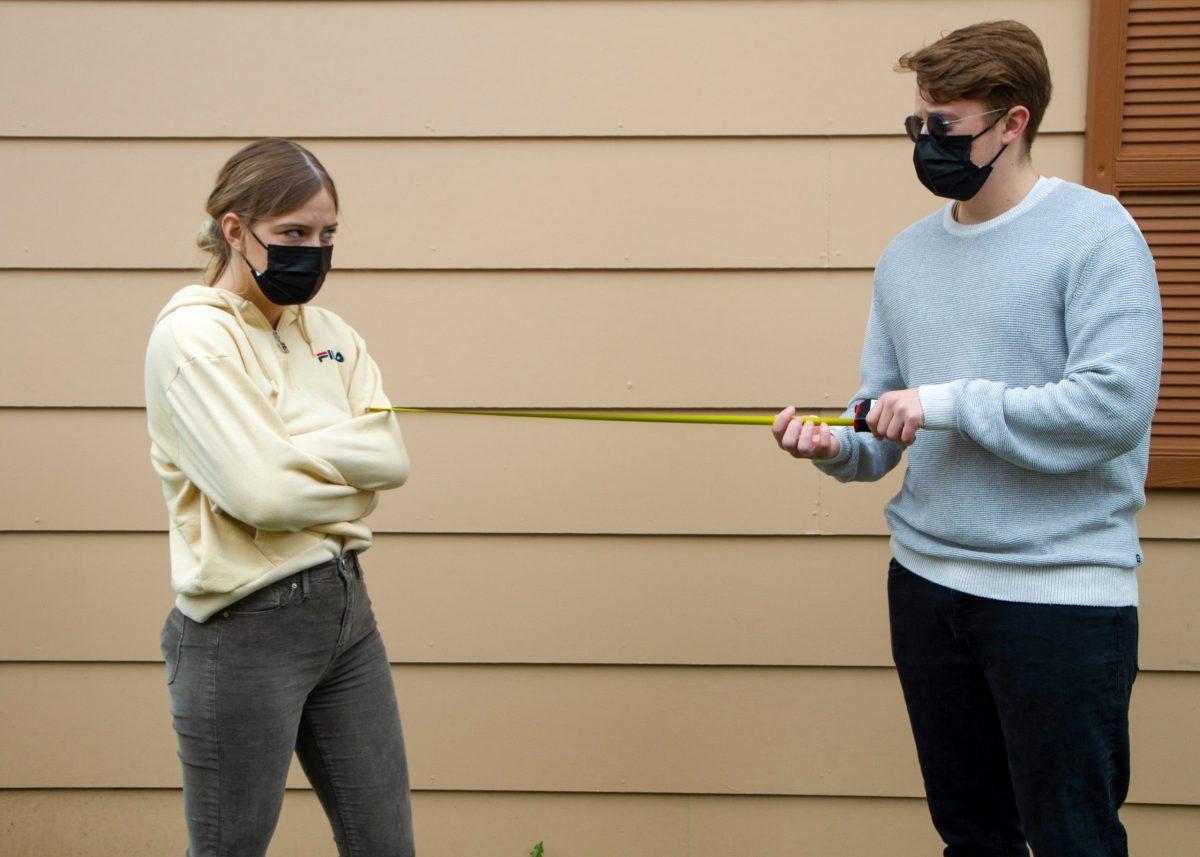Nothing can stop love – not even a pandemic. At least, that’s the case for the thousands of dating app users who joined various apps over the past year.
According to data from Adam Blacker, the vice president of Apptopia, major dating apps grew considerably between September and October of 2020. Match grew 21 percent, OkCupid 21 percent, and Bumble grew 16 percent. Other mainstream dating apps, such as Tinder and Hinge, also saw modest growth.
“The pandemic is why I got into dating apps and it was just addicting to do,” said junior Logan Stufflebaum. “You can just swipe mindlessly and it’s just fun. But I would dread going on dates [because] I don’t know where they’ve been. I don’t know what they’re doing.”
Meeting up with strangers has been a large cause of concern for individuals dating during the pandemic. For this reason, some apps such as Bumble have implemented ‘covid dating preferences.’ On Bumble, users can indicate whether they would prefer an in-person or virtual date, if they’re willing to social distance and more. Bumble has also implemented a video-calling option within the app to make virtual dating easier.
Despite these adaptations, dating apps can’t necessarily replace the feeling of meeting someone in person.
“Part of it was nice because I could just go away from my problems there,” Stufflebaum said. “But also, it felt fake… it’s definitely just not the same as talking to someone in person. I feel like you can’t get that connection with someone unless you hang out with them, which is an interesting dynamic in the pandemic for sure.”
Stufflebaum ended up meeting her boyfriend in December, after her mom took her out for a birthday dinner. He was the waiter for her family. After leaving him her Snapchat on the receipt, Stufflebaum and her now boyfriend ended up bonding over both working in the service industry. For Stufflebaum, using the pandemic as a talking point allowed her to expand the conversation to politics and other shared values.
“I don’t think that it would have worked out if he was like an anti masker,” Stufflebaum said with a laugh.
Stufflebaum isn’t the only one to start a relationship during the pandemic. Drake sophomore Abby Bankes and University of Iowa sophomore Sydney Uhlman started dating over the summer after being introduced by a mutual friend. The two began their relationship virtually, and have continued long distance during the school year.
“I think we first started talking on Instagram DMs and then Snapchat. Just very 21st century,” Bankes said. “It was a lot of FaceTime.”
Sophomore Liz Emmert met her boyfriend in March, when Drake students were still on campus. After they were sent home, the pair kept talking and eventually made the relationship official in May of 2020.
“We’d been dating for like two and a half months before we had our first date,” said Emmert. “It was kind of weird, very untraditional, but what can you do?”
Emmert describes how “surreal” it felt to finally see her boyfriend after starting their relationship so far away from each other.
“It was like an internet friend situation,” Emmert said. “So it was just like, ‘Oh, you’re like a real person. You’re not just a head and shoulders.’”
Aside from just FaceTiming and texting, people dating during the pandemic had to find unique ways to stay connected despite physical distance. With restaurants and other venues closed, standard dinner-and-a-movie dates were out of the question.
“We had to get pretty creative with dates,” Bankes said. “I remember when I was in isolation with COVID, Sydney set up a virtual trip to Savannah, Georgia and gave me a tour of the city.”
For couples who started dating the pandemic, healthy communication has played a big role in their success.
“We’ve been forced to become stronger as a couple and closer as a couple because of it,” Uhlman siad. “We have better communication than a lot of couples who’ve been dating for the length of time that we have. I just feel like going kind of through the collective trauma together has also brought us closer.”
Bankes agreed with Uhlman, saying their relationship has benefitted from taking the time to build their connection.
“I think our relationship was entirely based off of getting to know each other emotionally before we even met in person,” Bankes said. “So I think having that as the basis is pretty unique and has definitely helped us being long distance since.”
With the pandemic now lasting over a year, having someone to rely on and spend time with has become essential.
“He was the best thing to happen to me right before the pandemic because like all of my friends were gone, everyone was back home and it just kind of flipped the world upside down,” said sophomore Liz Emmert. “So having that connection, it was really nice. I always had somebody to talk to, especially when both of us were stuck at home.”







